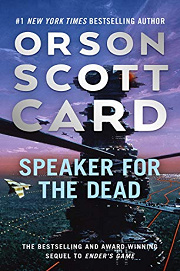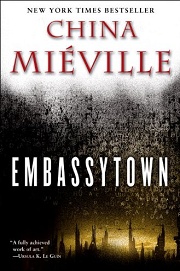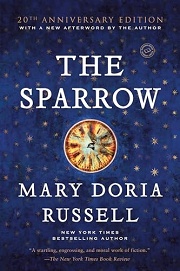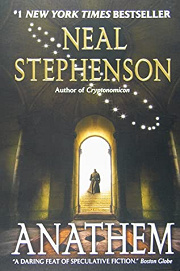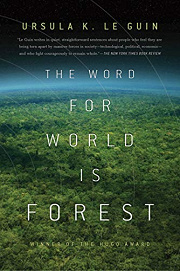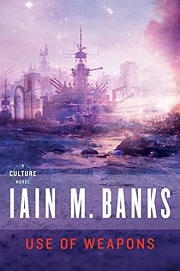Share your thoughts in a quick Shelf Talk!
Speaker for the Dead by Orson Scott Card
Decades after a war that reshaped humanity, a truth-telling traveler arrives on a distant world to speak for the dead—and for the living mysteries of an alien people. Profound and piercing, Speaker for the Dead explores empathy, culture, and the courage to understand.
Have you read this book? Share what you liked (or didn’t), and we’ll use your answers to recommend your next favorite read!
Love Speaker for the Dead but not sure what to read next?
These picks are popular with readers who enjoyed this book. Complete a quick Shelf Talk to get recommendations made just for you! Warning: possible spoilers for Speaker for the Dead below.
In Speaker for the Dead, did you enjoy ...
... the meticulous, empathetic decoding of an alien society’s worldview and language?
Embassytown by China Miéville
If what hooked you was how Ender learns the Pequeninos’ life cycle and taboos—piecing together why Pipo and Libo died and what the descolada means—then you’ll love how Embassytown unpacks the Ariekei’s literal-minded Language. Watching human “Ambassadors” struggle to communicate without lying, metaphor, or selfhood feels like the moment Ender realizes the piggies’ ‘third life’ isn’t barbarity but biology. It’s that same careful, anthropological awe and ethical tightrope walk you felt on Lusitania.
... a slow-burn investigation that peels back a first-contact tragedy layer by layer?
The Sparrow by Mary Doria Russell
If you loved how a Speaker’s inquiry into Pipo and Libo’s deaths gradually reveals Lusitania’s truths, The Sparrow will pull you in. Jesuit linguist Emilio Sandoz returns from the planet Rakhat broken, and the narrative reconstructs—much as Ender reconstructs a life at a Speaking—what really happened. The alternating timelines echo the way Novinha’s secrets and the piggies’ customs unfold, transforming a mystery into a devastating understanding.
... big-idea philosophizing about consciousness, knowledge, and contact woven into a character journey?
Anathem by Neal Stephenson
If the moral-philosophical heart of Ender’s Speeches—grappling with guilt over xenocide, the ethics of truth-telling, and what it means to truly know another species—moved you, Anathem delivers that same heady mix. Erasmas and his cloistered scholars debate minds and realities until an encounter forces those ideas into action, mirroring the way Ender’s abstract empathy becomes concrete as he confronts the Pequeninos and the descolada’s implications.
... a tense, morally charged clash between colonists and an alien people with radically different lifeways?
The Word For World Is Forest by Ursula K. Le Guin
If the friction between Lusitanian colonists, the Starways Congress, and the Pequeninos—Catholic customs colliding with alien rites and biologies—stuck with you, this novella will hit home. On Athshe, human exploitation grinds against an indigenous culture’s dreams and values, echoing how misunderstanding on Lusitania spirals into violence. It probes the same colonial fault lines Ender navigates when he tries to speak honestly for both humans and piggies.
... the fraught ethics of intervention and responsibility when wielding power across cultures?
Use Of Weapons by Iain Banks
If Ender’s burden—carrying the weight of past xenocide while deciding how, or whether, to intervene among the Pequeninos—kept you thinking, Use of Weapons will challenge you. Cheradenine Zakalwe’s missions for the Culture dissect what ‘help’ means, much like Ender’s Speeches force communities to face uncomfortable truths. As with Ender choosing when to speak and when to stay his hand, every choice here has a moral bill that comes due.
Unlock your personalized book recommendations! Just take a quick Shelf Talk for Speaker for the Dead by Orson Scott Card. It’s only a few questions and takes less than a minute.
